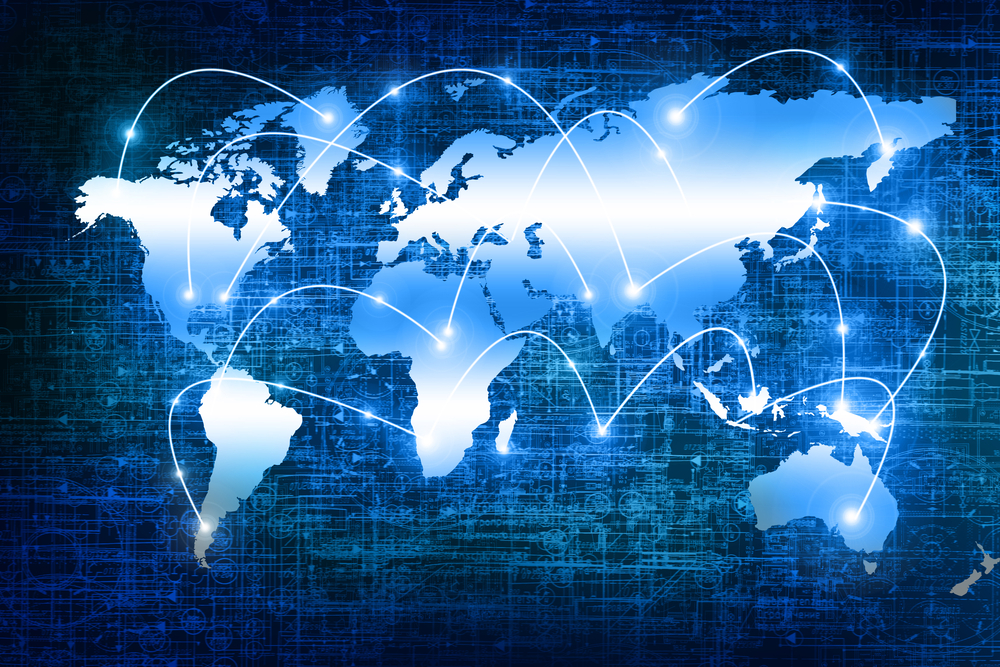Corona Crisis: Massive Delivery Bottlenecks for Goods from China to Europe
Companies in Europe who are dependent on supplies from China are worried about bottlenecks and increasing prices in the logistics chain. Shipments are being delayed due to ports being overcrowded and container ships operating at full capacity. The cost of transporting goods is constantly increasing. Currently, prices in excess of $5,000 are being charged for a 40 foot ocean freight container that can hold 25 Euro pallets of freight.
The first shipping companies are stopping bookings as many container ships are full by the end of December. The market situation for imports from Asia continues to deteriorate, a German logistics company has said. Shipping companies may charge expensive premium surcharges. In some places, sea containers are missing and charter ships can’t be booked due to all capacities being sold out.
The outlook for rail transport from the Far East does not look much better either. Bringing a standard container by train from Wuhan in China to Germany currently costs $8,350. Freight wagons are a scare commodity and the flow of goods is one-sided
Aviation is looking similar too. Due to the decrease in passenger flights, the cargo capacities are missing. Some airlines are sending planes into the air as freighters. Industry experts expect that air freight prices will continue to rise towards the end of the year due to shipping capacities being exhausted, and companies increasingly having to switch to planes so they can still bring goods to Europe.
The situation could also impact the delivery of protective equipment again, which is still urgently needed in Europe to combat the Coronavirus pandemic. 99% of protective clothing comes from Asia. The Chinese New Year celebrations in February could mean six weeks of no production, and eight to ten weeks of no new goods coming from China. There could be a shortage and prices will continue to rise. The problem will be seen in April or May 2021, and if things get bad, the goods could be missing entirely.
Interested in reading more? Click here.
Vodafone to set net-zero target for 2040
Vodafone has committed to reducing its carbon emissions to net-zero by 2040. The British multinational telecommunications company will eliminate emissions from its activities and energy procurement and halve Scope 3 emissions by 2030.
The aim to reach net-zero emissions by 2040 will be done through carbon reduction targets which have been approved by the Science Based Targets initiative in line with reductions required to keep global warming to 1.5°C, which is the most ambitious goal of the Paris Agreement.
The science-based targets will see Vodafone strive to eliminate carbon emissions from Scopes 1 and 2 – its own activities and energy procurement – and halve Scope 3 emissions, which includes joint-ventures, supply chain purchases, the use of sold products and business travel.
The targets will set up the required decarbonization rate to allow Vodafone to elimiate Scope 3 emissions completely by 2040 – ten years ahead of their original 2050 ambition.
The company has worked with facilities management firm Mitie to reduce its UK carbon footprint by 25,000 tons over a three-year period, with improvements to building-based energy use. By working with Mitie, they have saved 100GW of energy over the three-year period, which is the equivalent of powering the homes of 65,000 people for a year. Vodafone has vowed to power its European network, which spans 11 national markets, with 100% renewable electricity by the end of July 2021.
Read more here.
Walmart to boost last-mile delivery tech
Walmart plans to acquire the platform, intellectual property and staff of last-mile delivery app JoyRun. It is a peer-to-peer delivery app where users offering delivery services can send a message to other users in their area that they are making a trip to a retail store or restaurant, and invite them to join the order. The app has around 30,000 users and approximately 540 retail partners.
The American multinational retail corporation will temporarily shut down the app when it assesses the intellectual property and business model. It will then relaunch it in some form but could be different from the original.
JoyRun’s team will join the supply chain technology team – within Walmart’s Bay Area global tech team – which has extended remote work indefinitely this year.
At the moment, Walmart does not know if or how JoyRun will integrate into its existing last-mile portfolio, but the retailer’s move to aquire the startup presents more evidence that Walmart’s strategy continues to diversify.
Current last-mile strategies and pilots include autonomous delivery vehicles, third-party services, in-sourced delivery services to people’s doorsteps and inside consumers‘ homes, and also experimentation with drones. Though Walmart is diversifying its last-mile offering, it gives last-mile providers some regularity.
Click here to read more.


8 comments
This is one awesome blog article. Really looking forward to read more. Really Cool.
Very informative article. Much thanks again. Want more. Holly Terencio Inkster
There is certainly a great deal to know about this topic. I love all of the points you made.
This is one awesome blog. Really looking forward to read more. Cool. Clemence Keane Claire
Thanks a lot for the article. Really thank you! Great. Layney Deck Gader
Wow, great article post. Really looking forward to read more.
I admire your piece of work, appreciate it for all the great posts.
Awesome write-up. I am a normal visitor of your site and appreciate you taking the time to maintain the nice site. I will be a regular visitor for a really long time. Jillian Taite Farmer
Comments are closed.